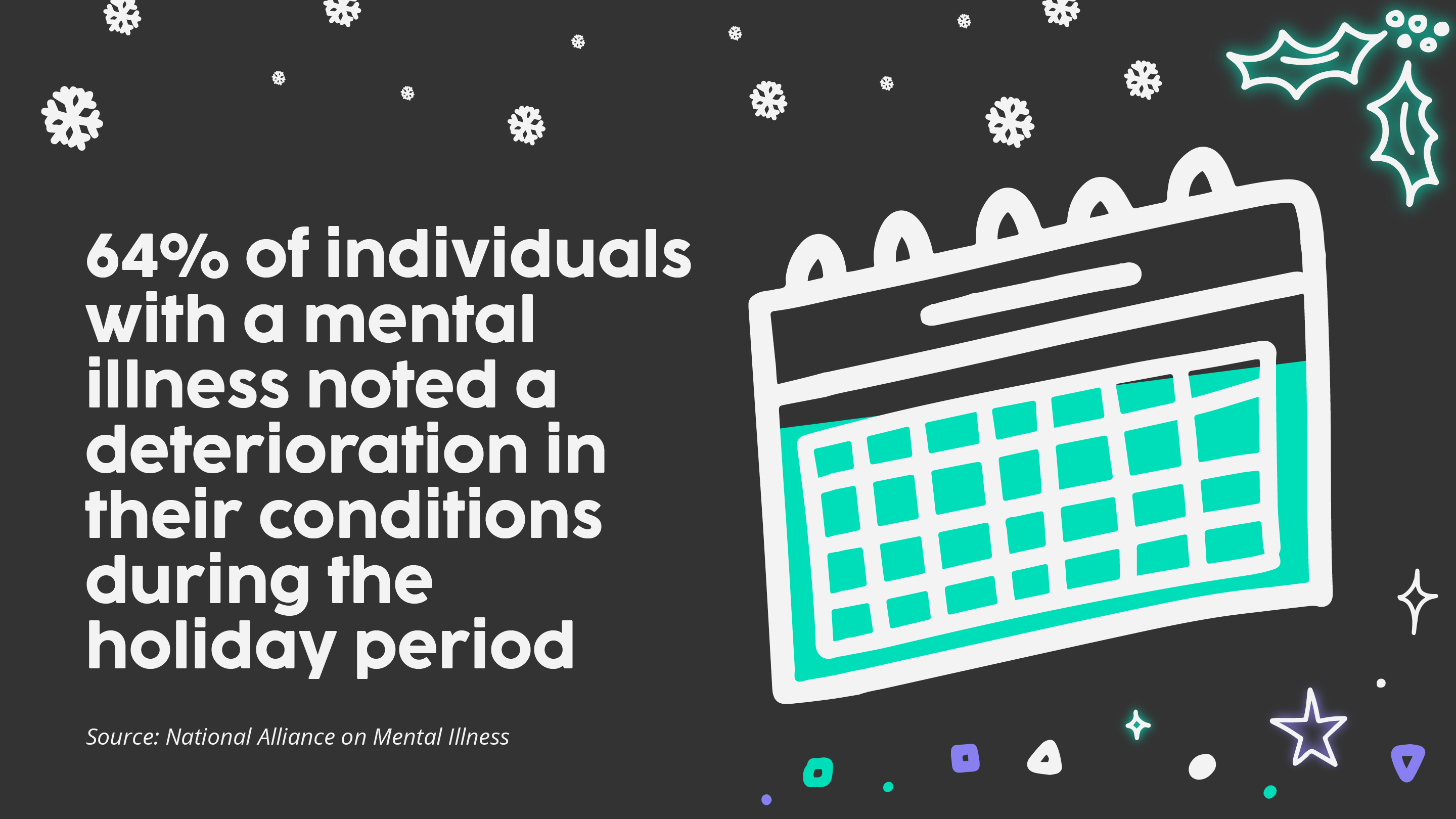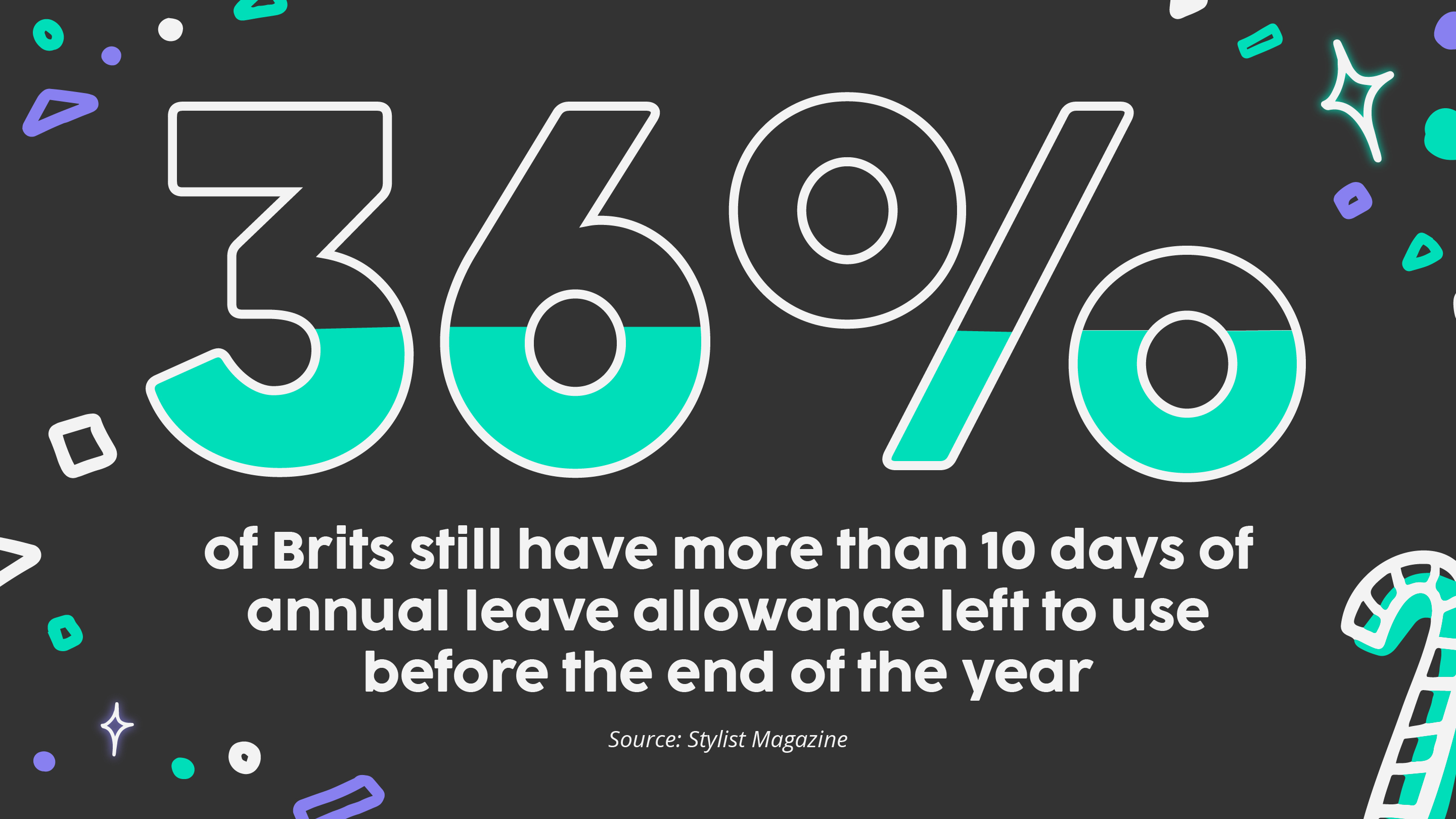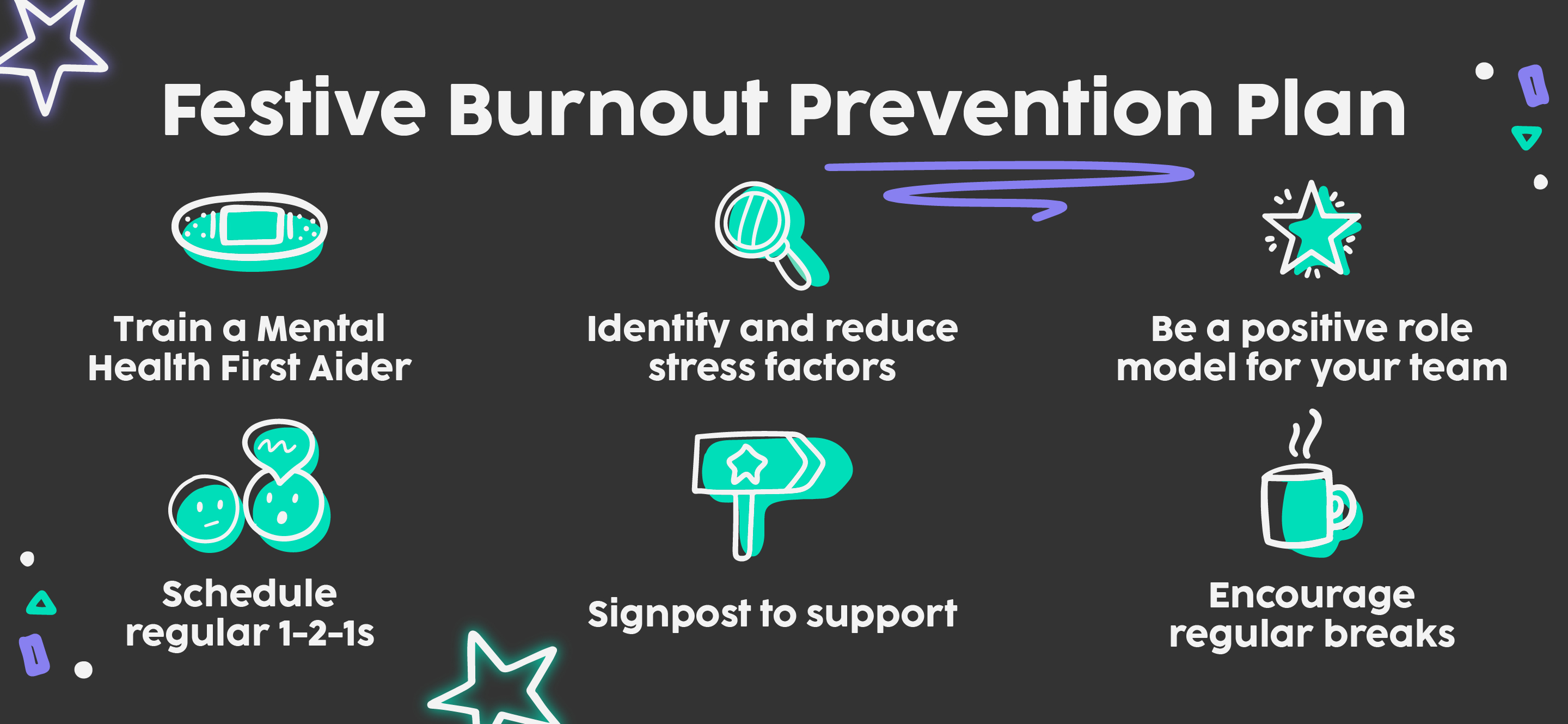How To Prevent Employee Burnout At Christmas
Details: Written by Kelly Worsnop
|
Published:

As Christmas break looms in offices, schools and colleges across the country, your employees are probably close to running on empty and succumbing to the B-word. That’s right. Burnout. But why is burnout so acute this time of year? 36% of Brits felt more stressed about the 2023 festive season when compared to 2022. A survey found that 42% of employees see December as the most stressful month in the calendar year. Many of your employees approach the Christmas rush with an uncomfortable sense of apprehension due to extra work pressures, crammed social diaries, increased expenditure, childcare responsibilities, and grappling with family expectations to name a few. Employees who succumb to mental and physical exhaustion during the festive season can be up to 68% less productive, not to mention the detrimental effects on their long-term well-being. This blog will show you how The Skills Network can help equip managers and staff with the skills and knowledge needed to prioritise and protect mental health at Christmas and prevent employee burnout.
What is Employee Burnout?
In 2019, ‘burnout’ was officially recognised by the World Health Organisation (WHO) as an ‘occupational phenomenon’, characterised by:
- Feelings of energy depletion or exhaustion
- An increased mental distance at work, feelings of negativity and/or cynicism related to one's job
- Reduced professional efficacy
Stress vs burnout are two very different things and the two must be understood with clarity by employers as separate states with separate signs and symptoms.
During the festive period, feelings of anxiety, stress and specifically ‘Christmas depression’ are significantly heightened. Medical professionals and mental health experts have consistently observed heightened rates of depression and worsened mental health at Christmas.


The Skills Network can offer your business a plethora of mental health and well-being online courses for managers and employees.
Online mental health and wellbeing courses include:
- FREE Level 2 Certificate in Understanding Mental Health First Aid and Mental Health Advocacy in the Workplace
- FREE Level 2 Awareness of Mental Health Problems
- Mental Health Awareness CPD
- Stress Management CPD
- Understanding Anxiety CPD
Many assume that employee burnout is caused by working long hours and generally not ‘switching off’ after work, but quite often there is much more to it.
“Each person has their own unique ‘burnout cocktail.”
It’s never just one thing that brings on workplace burnout, but the outcome is always the same – a person who is struggling to juggle everything, to the point where mental and physical health suffers” says burnout expert Dr Sonia Hutton-Taylor.
The following are some but not all of the potential causes associated with employee burnout:
- Difficulty in managing stress
- Poor leadership from managers
- Lack of control over workload or deadlines
- Concerns around job security
- Perfectionism
Read more about how to spot burnout in employees
What Causes Employee Burnout at Christmas?
Burnout is very personal and can be the result of a very complex mix of issues both in and out of the workplace environment.
Some common workplace Christmas burnout contributing factors include:
- Seasonal Deadlines
Gemma Leigh Roberts, an organisational psychologist and the founder of The Resilience Edge says, “It's common to feel last-minute pressure before switching on your out-of-office. Knowing you’ll be taking time off from work may cause you to experience pressure as you feel you need to complete a number of tasks before signing off.”
- End-of-Year Performance Reviews
Regardless of job role, industry or seniority level, annual end-of-year performance reviews can be a stressful experience. Salary reviews and promotion plans are common causes of performance review anxiety and can lead to employees feeling considerable pressure come December.
- Pressure to use annual leave
According to a Glassdoor survey , many employees use their annual leave as an effective strategy to reduce burnout. However, a significant number of workers did not utilise their entire holiday entitlement due to workload pressures, with only 60% using their full holiday allowance. The dreaded ‘use it or lose it’ is sometimes weaponised against employees in the run-up to Christmas, to ensure that unclaimed annual leave is taken.

Don’t let your employees burn out this festive period!
Equip staff with a robust toolkit to help prevent stress and anxiety.
Contact us today about staff skills training
How To Prevent Festive Burnout In The Workplace
Whilst we don’t necessarily recommend you go and buy Christmas stress balls for all your team (trust us, they really are a thing!), we do recommend investing in employee wellbeing.
A sustainable route to preventing burnout and maintaining good mental health in the workplace all year round is by equipping managers and staff with the skills they need to navigate any challenges to their wellbeing.
Luckily for your business or organisation, investing in employee wellbeing training doesn't have to come at a cost with The Skills Network.

Thanks to government funding from the Adult Education Budget, we can deliver online staff training for FREE.
This includes:
- FREE Level 2 Awareness of Mental Health Problems
- FREE Level 2 Certificate in Understanding Mental Health First Aid and Mental Health Advocacy in the Workplace

Check out our free online courses
A resilient and productive workforce starts with mindful leadership and well-being investment.
Managers hold the key to preventing Christmas employee burnout by promoting work-life balance, acknowledging stressors, and implementing strategies that prioritise employee mental health.

This blog has explored the meaning and causes of employee burnout at Christmas. The Skills Network is here to ensure that your workforce remains healthy and happy as we enter 2025 with proactive skills training and empathetic leadership.
Contact us today about staff skills training
Find out more about our own health and well-being initiatives here at The Skills Network.